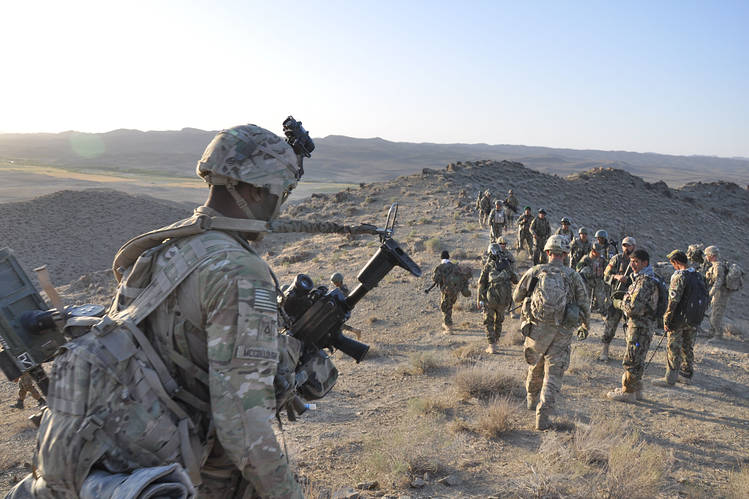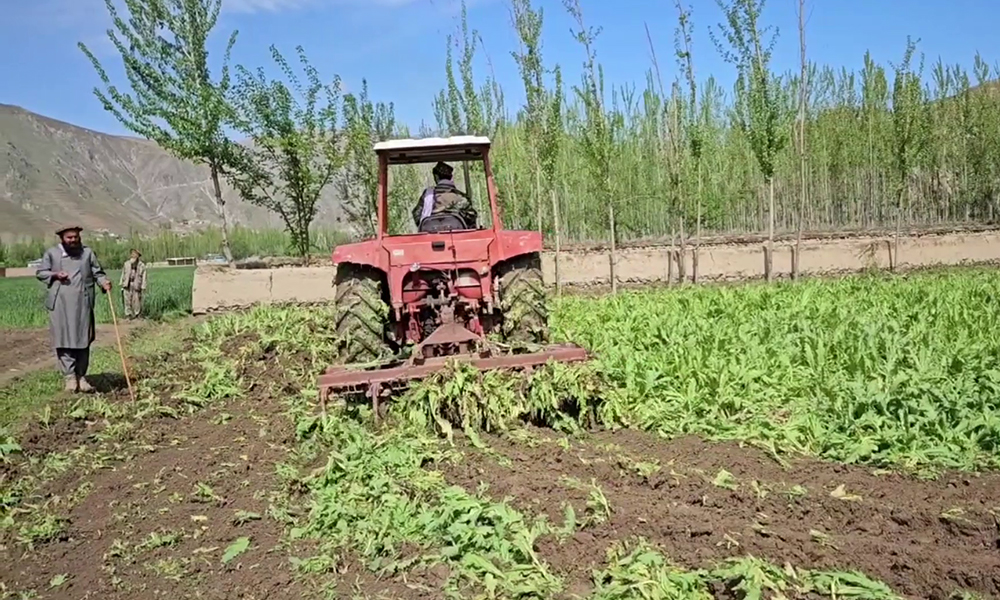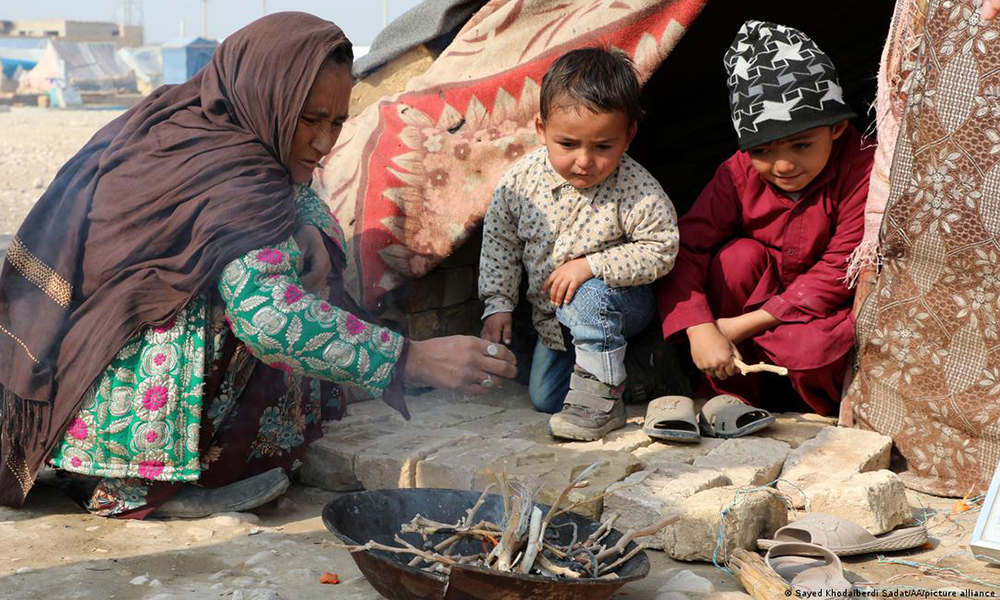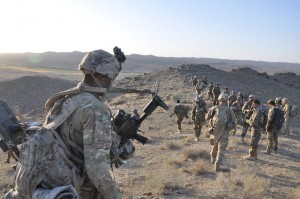Latest News
US , Britain sent Special Forces to Helmand

The U.S. and Britain have deployed at least four special-operations teams to the Afghan province of Helmand, stepping up their direct intervention in support of struggling Afghan government forces trying to fight off advances by Taliban militants.
The Taliban have taken control of at least four districts in Helmand, a major focus of U.S. and U.K. combat operations until late last year, and now threaten areas bordering the provincial capital Lashkar Gah, local officials said.
At least 2,000 Afghan forces have been killed or wounded in Helmand in the past year, according to a Western official who recently reported on the deteriorating security situation in the southern Afghan province.
Preventing the provincial capital from falling into the hands of the Taliban is a priority for U.S. Army Gen. John Campbell, the commander of the North Atlantic Treaty Organization-led military coalition in Afghanistan, coalition officials said.
In September, Taliban fighters in a matter of hours seized another provincial capital, Kunduz, and held it for several days, delivering a huge shock to coalition officials. U.S. Special Forces were deployed to help Afghan forces drive out the rebels.
In a bid to avert a similar Taliban takeover in Helmand, at least three Special Forces Operational Detachment Alpha units—so-called A-Teams—have been moved to the province to join a unit deployed there this year, a U.S. security source based in the province said.
At least one British special-operations team is also in Helmand, marking the first return of U.K. troops to the province since last year, this person added.
A U.S. Special Operations spokesman confirmed in an email that “additional U.S. special forces have been sent to augment our Train, Advise, and Assist mission in Helmand.” The spokesman declined to comment on the number of teams.
The role of the A-Teams in Helmand is to advise Afghan troops as part of the NATO support mission, but they often accompany Afghan forces during military operations and fight when they are threatened. They are also authorized to call in airstrikes.
Afghan security forces assumed responsibility for combat operations from the NATO-led coalition this year. Yet while the U.S. has strict rules setting forth when its forces can provide direct combat assistance to Afghan forces, the brief seizure of Kunduz has led to a more aggressive approach by the U.S.
“The rules were loosened because of the way things were going,” another Western official said.
The risks entailed by joint operations involving airstrikes were evident in Kunduz. A U.S. Air Force AC-130 providing air support during the offensive to retake the city bombed a hospital run by Doctors Without Borders, killing more than 40 people.
Gen. Campbell told reporters in Kabul in November that some Americans involved in the operation hadn’t followed the rules of engagement and had been suspended from duty pending a disciplinary review. President Barack Obama apologized for the airstrike.
An A-Team is usually made up of 12 men trained in a particular military specialty and deployed for the riskiest military operations. In Afghanistan, these operations consist of nighttime raids aimed at capturing or killing Taliban militants. Such missions have increased in Helmand in the weeks since the latest team arrived, Afghan officials said.
A member of the Afghan military described a raid Sunday night in Helmand’s Nahr e-Saraj district that he said killed 14 Taliban fighters. Three U.S. combat helicopters participated in the joint U.S.-Afghan operation, he said.
A report in November by the Afghan Interior Ministry said seven Taliban fighters had been killed in a joint U.S.-Afghan special-forces raid in the village of Pahin, also in Nahr e-Saraj.
Both U.S. and Afghan officials declined to comment on the raids. “Our forces receive air support from the foreigners, and they are only assisting Afghan forces in advisory role on the ground,” said Afghan Army Gen. Daulat Waziri, responding to questions about military operations in Helmand.
For the Taliban, Helmand is important commercially—opium production in the province is an important source of revenue. The group’s fighters have focused on the roads to several districts, planting mines and ambushing government reinforcements.
Police said their checkpoints are frequently targeted and that it was only a matter of time before their last remaining strongholds collapse.
In October, 23 Afghan troops manning a checkpoint were killed by the Taliban during an all-night fight. Reinforcements from their headquarters, just a mile away, never arrived, said the U.S. security source in Helmand.
“We are in the front line but we haven’t received our salaries for two months and don’t have food,” said Ahmad Shah, a local police commander stationed in the district of Marjah. “We knock on people’s door to ask them to provide us food.”
Afghan officials acknowledged the challenges facing government forces in Helmand but denied that the Taliban had made significant gains in the province. Omar Zwak, a spokesman for Helmand’s governor, said government forces were present in all but two of the province’s 13 districts.
Mr. Zwak declined to comment on nighttime raids, saying U.S. and Afghan officials were discussing the possibility of additional support.
Helmand has seen some of the bloodiest fighting following the U.S.-led invasion of Afghanistan in 2001 that forced the Taliban from power.
It hosted adjacent U.S. and British bases known as Camp Leatherneck and Camp Bastion, which were formally handed over last October. The bases were the logistical hub and headquarters for allied military operations in the province and once housed some 40,000 U.S. and coalition troops.
The majority of the 378 U.S. Marines killed in Afghanistan during the war died in Helmand. The British lost some 450 personnel, most of them in the province, too.
Source: Wall Street Journal

Latest News
Over 6,000 acres of land cleared of poppies in Badakhshan

Badakhshan Police Command says it has cleared more than 6,000 acres of poppy fields in northern Badakhshan province.
The anti-narcotics department of Badakhshan Police Command says that since the beginning of the campaign to destroy the poppy fields in this province, they have cleared more than 6,000 acres of land.
According to these officials, poppies have however been planted in more than 10 districts this year.
The anti-narcotics department of the Badakhshan Police Command says that the campaign to destroy the poppy plantations started two months ago and continues.
According to the officials, during this period, 6,300 acres of land has been cleared.
Some of the farmers whose fields were destroyed say that poppy is more profitable than other agricultural products, but now that their land has been cleared, they want alternative crops.
According to the officials, Kishim, Argo, Darayimand and Jurm districts are among the districts where poppies are cultivated.
Latest News
MSF ‘deeply concerned’ over new phase of deportations of Afghans from Pakistan

Médecins Sans Frontières (MSF) said Wednesday it was deeply concerned for the rights and welfare of Afghan refugees in Pakistan in the wake of the recent announcement by Islamabad that it plans to start Phase Two of the deportation campaign.
Pakistan is home to an estimated 3.7 million Afghans, and a reported 500,000 have crossed the border so far.
Many Afghans living in Pakistan have been there for decades and have spent more time in the country than their country of origin, without any legal recourse to remain in the only place they can effectively call “home”.
For many Afghans, Islamabad’s “repatriation” campaign means packing up their belongings and carrying them on a horse, cart, car and bus and traveling en masse to a country that is already struggling with widespread poverty, inadequate health services and increased restrictions on women, MSF said in a statement.
The second phase of the deportations leaves an estimated 800,000 Pakistan-issued Afghan Citizen Card (ACC) holders vulnerable to return, while phase three is expected to result in the further deportation of UNHCR-issued Proof of Registration (PoR) card holders, MSF said.
MSF first started working in Pakistan in 1986, and today provides much-needed medical care to people in Balochistan, Khyber Pakhtunkhwa and Sindh provinces.
The Islamic Emirate of Afghanistan (IEA) and UN agencies estimate that more than half a million people have been deported from Pakistan or voluntarily returned to Afghanistan in the past six months.
The United Nations High Commissioner for Refugees said last month that nearly two million Afghan refugees are living in Pakistan and that the agency needs $368 million this year to assist these people.
Latest News
2023 marred by ‘tremendous challenges’ for Afghanistan

Last year, 2023, was a year of “tremendous challenges” for the people of Afghanistan, but it was also a year marked by resilience and determination, the Deputy Special Representative of the Secretary-General, Resident and Humanitarian Coordinator, Indrika Ratwatte, said in the UN’s annual report on Afghanistan that was published this week.
Ratwatte said: “In the face of adversity and multiple concurrent shocks, the people of Afghanistan have demonstrated remarkable courage and strength.”
Afghans now mention access to food as their most pressing need, he said adding that “unable to pay for or produce basic sustenance, millions face hunger and malnutrition.”
In 2024, an estimated 15.8 million people will experience crisis and emergency levels of food insecurity.
The majority of the population is unable to procure basic needs such as healthcare, food, livelihoods, and housing, the report stated.
The UN found that the country also remains vulnerable to climate change.
Following the worst drought in three decades, emerging El Niño conditions now threaten a new cycle of flooding and crop pests. In this context, lifesaving humanitarian aid has been crucial in preventing the collapse of the social fabric. It has also served to underpin the stability of the economy. Despite growing humanitarian needs, relevant funding cuts have forced humanitarian actors to prioritize the most vulnerable further, the report stated.
A Gallup poll found that 95 percent of the population consider themselves to be suffering. In addition to living in poverty, the average life expectancy in Afghanistan has been falling for the past five years.
The Herat earthquakes and unprecedented large-scale returns of refugees from neighbouring countries, including Pakistan and Iran, have shown the disruptive impact of recurrent shocks and underscored the need for sustained international engagement and support, the UN stated.
“As we embark on the next chapter, in 2024, it is imperative that we remain steadfast in our commitment to the principles of human rights, gender equality, and women’s Empowerment,” Ratwatte said.
“We will continue to include women as key partners in our work, to provide assistance ‘by women, for women’, and to tirelessly work for equal access to education in line with the demands we hear from Afghans in all areas of the country,” he said.
However, from an economic point of view, Afghanistan’s economy appears to be stabilizing at a low equilibrium level following a period of significant contraction since 2021.
The UN said in the report that growth barriers include severely restricted operations in the banking sector (including microfinance institutions), trade disruptions, and institutional issues hindering service delivery, including in the private sector.
“The sudden cessation of a significant amount of international aid and grants, which had accounted for 40 percent of the country’s Gross Domestic Product (GDP), along with a freeze on international reserves amounting to about US$9 billion and the imposition of international sanctions, caused a severe balance of payments, banking and payment systems crisis.
“Notably, financial restrictions have removed liquidity from the banking system,” the report stated.
Despite the crisis and a period of devaluation towards the end of the year, the AFN is 20 percent stronger than it was in 2021 due to currency export controls, UN cash shipments of US dollars into Afghanistan, and personalremittances.
Imports continued to surpass exports through 2023 and increased as the economy contracted.
“This appears to be a paradox: the currency appreciated while the trade deficit widened, suggesting that there might be other unidentified sources of financing besides US dollar cash shipments and remittances to support the account deficits,” the report read.
The UN also said that with its partners, it will work to initiate a dialogue with the Islamic Emirate on adjustments to regulatory frameworks and sustained public service delivery with the aim of creating a long-term and sustainable pathway to reduce aid dependency and put Afghanistan back on a path towards development
“In this regard, we reiterate our offer to the DFA for a dialogue and will work jointly with international partners, donors, and Afghans on how such engagement can be structured in a most productive way.”
-

 Sport5 days ago
Sport5 days agoACL draw to be broadcast live on ATN channels
-

 Regional5 days ago
Regional5 days agoIRGC chief warns of harsher response if Israel attacks Iran
-

 Sport4 days ago
Sport4 days agoACL fever grows as fixtures finalized
-

 World4 days ago
World4 days agoUS will not take part in any Israeli retaliatory action against Iran
-

 Latest News4 days ago
Latest News4 days agoOver 50 people dead in traffic accidents over Eid
-

 Latest News4 days ago
Latest News4 days agoUS identifies Kabul airport suicide bomber
-

 Business4 days ago
Business4 days agoAfghanistan-Kazakhstan chamber of commerce opens in Herat
-

 Latest News4 days ago
Latest News4 days agoGood rains enable DABS to increase power production in Kabul
















